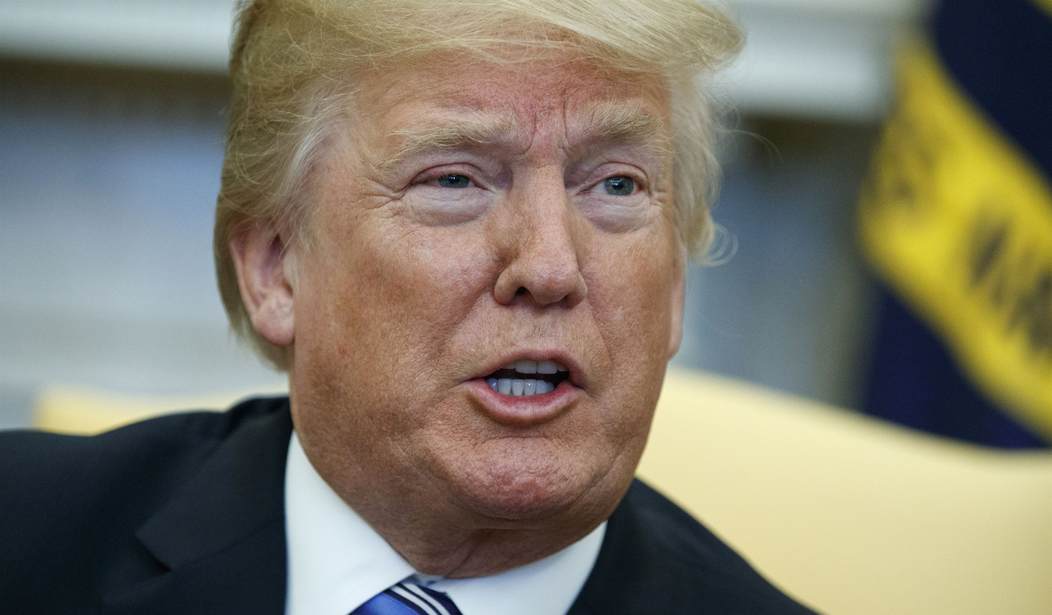Last week, Donald Trump dialed back his earlier call for a punitive and blanket tariff on imported steel and aluminum. Good decision. The financial markets rallied, as the new plan specifically targets countries that are cheating and stealing, such as China and Russia, and provides exemptions for allies.
It was a reminder that, with Trump, it always comes down to the art of the deal.
Trump's original call for blanket tariffs got the world's attention and reiterated to world leaders that Trump doesn't bluff.
That's a useful lesson for our friends and foes alike.
Trump makes a strong case that many of our trading partners -- most notably, China -- are violating trade-agreement rules left and right and stealing American patents and intellectual property. And they have been doing so for years and years with impunity.
China is estimated to be pirating more than a half trillion dollars' worth of American technology, inventions, drugs, vaccines and computer software each year. That is theft, and it cannot stand.
Trump is right that we've tolerated these abuses under a belief that to challenge them would violate principles of free trade. There has also been a sense of resignation in Washington over this issue -- a feeling that there isn't much America can do about it. Nonsense. We are being played as suckers.
Trump has introduced a new strategic doctrine on trade, and though I have some reservations (I opposed the steel tariffs), it's important that we understand it and realistically assess its merits.
Based on my conversations with Donald Trump on this subject, his doctrine is predicated on the undeniable truism that nations such as China and Russia need America far more than we need them. We both benefit from our transactions, but they benefit more than we do.
Trump wants to exploit that American advantage. The idea here is very simple: If you own a really nice restaurant that everyone lines up to get into on a Saturday night, you can raise the menu prices.
Recommended
This strategic free trade stance is designed to monetize the advantage that America has as a result of having the largest and most lucrative consumer market. Since we are the global alpha male, we can make the rules -- rather than hand them off to the feckless bureaucrats at the World Trade Organization.
Trump wants to use trade policy to advance America's national and economic security priorities. He wants to make access to U.S. markets contingent on foreigners' playing by the rules (e.g., paying full price for the research costs of our technologies). He also wants to demand that our trading partners purchase more American-made products -- whether it is our corn, cotton, cars or computers. If they don't cooperate, they will pay a toll or tariff. You might call this the "weaponization" of trade, but it is designed to put the interests of American companies and workers first.
The Chinese aren't going to like having to conform to these new rules, but what alternative will they have? Any tit-for-tat retaliation will hurt them far more than us. If we lose access to their cheap goods and services, we pay more for clothes and toys and toothpaste at Walmart. If they lose access to our markets, they crash into recession. Who loses more here?
This doctrine can also be used effectively to advance our national security goals. We could give China the choice between cooperating in the nuclear disarmament of Beijing's lap dog, North Korea, and losing access to American markets.
Does the Trump doctrine risk a trade war? Hopefully not, but it could happen, to everyone's detriment, if other nations don't stand down.
The goal here is to enable the United States to seize a larger share of the gains from trade. These gains have been enormous for everyone: The expansion of international trade from 1980 to 2005 launched the greatest period of poverty reduction in world history, with a billion people moved out of abject poverty.
Trade across borders is undeniably good, as Adam Smith taught us some 250 years ago. But strategic trade rules that give America a bigger share of the global winnings, keeping us rich and safe, is even better. Certainly our farmers, our technology and pharmaceutical companies and our industrial blue-collar workers would applaud that. Trump's election proves that a sizable number of voters in both parties aren't buying into the unfettered unilateral free trade posture that the U.S. government has held for the last several decades.
Trump may be on to something here, and I don't know if I'd endorse his trade doctrine, but it's worth considering and not dismissing out of hand.

























Join the conversation as a VIP Member